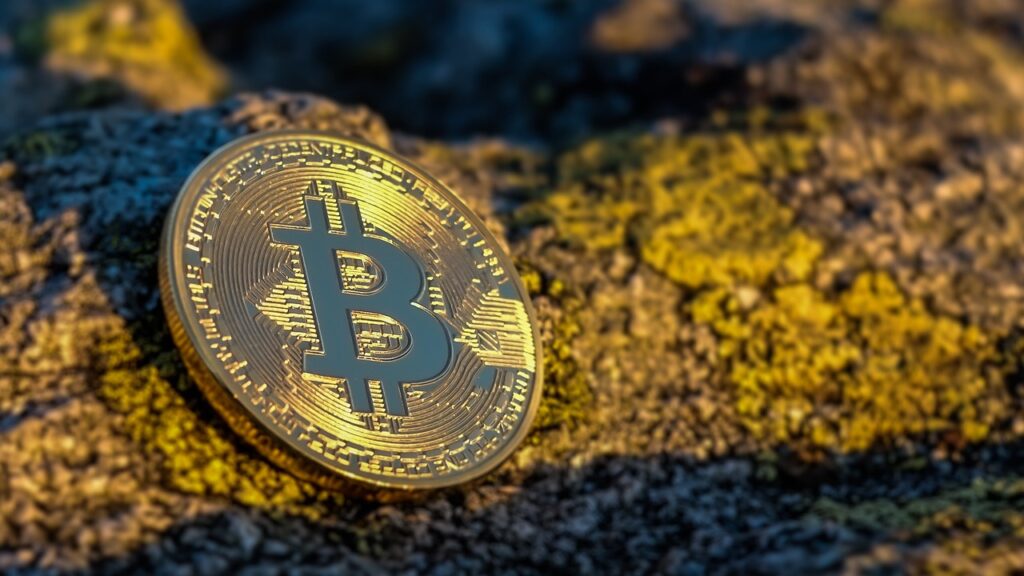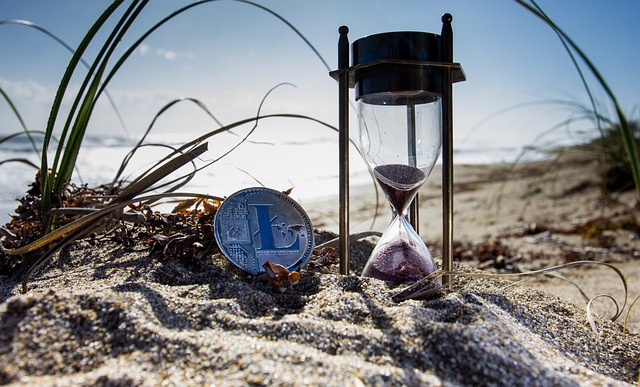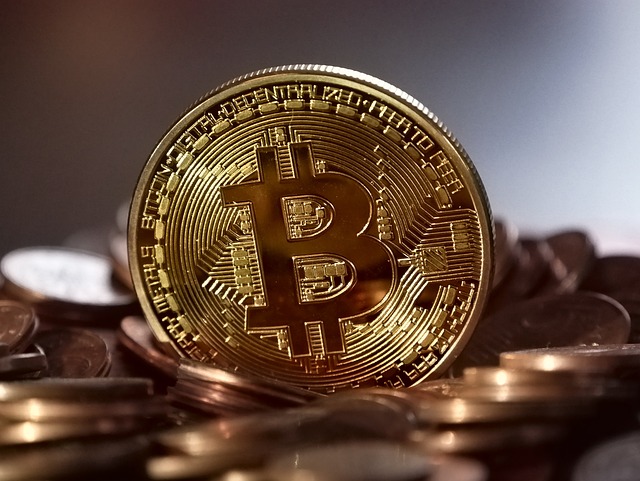Decentralized Finance vs. Traditional Banking: Advantages Explored
Decentralized Finance vs. Traditional Banking: Advantages Explored

The Evolution of Financial Services: A New Era Emerges
The world of financial services is undergoing a remarkable transformation, as a new era emerges that promises to revolutionize how we handle our money. With the advent of decentralized finance, also known as DeFi, traditional banking is being challenged by innovative and inclusive systems that empower individuals like never before. This shift presents exciting opportunities for financial services to become more accessible, efficient, and secure, catering to the needs of a diverse range of people worldwide.
As we delve into the new era of financial services, one of the most notable changes brought about by DeFi is the increased accessibility and inclusivity it offers. Gone are the days when financial services were only available to a select few who met the stringent criteria set by traditional banks. With DeFi, individuals from all walks of life can access a range of financial products and services, regardless of their income level or geographical location. This democratization of finance not only provides opportunities for the unbanked or underbanked population but also fosters financial empowerment, allowing individuals to take control of their own financial wellbeing.
Accessibility and Inclusivity: How Decentralized Finance is Changing the Game
Decentralized Finance, also known as DeFi, is revolutionizing the way we access and engage in financial services. With traditional banking systems often riddled with barriers and exclusionary practices, DeFi offers a more inclusive and accessible alternative. Through the use of blockchain technology, DeFi platforms empower individuals to participate in a range of financial activities regardless of their location, background, or financial status.
One of the key ways in which DeFi enhances accessibility is by removing intermediaries. In traditional banking, individuals often have to go through various middlemen such as banks, brokers, and payment processors to access financial services. These intermediaries not only create additional costs but also increase the complexity and time it takes to make transactions. DeFi streamlines this process by enabling peer-to-peer transactions, allowing individuals to interact directly with each other without the need for a middleman. This not only saves time and reduces fees but also levels the playing field, giving everyone equal access to financial services. Whether you are in a rural area with limited banking infrastructure or in a developing country where traditional banking services are scarce, DeFi opens up a world of financial possibilities.
Cutting out the Middleman: How DeFi Streamlines Transactions
The advent of decentralized finance (DeFi) has brought about a groundbreaking shift in the way we conduct transactions. Gone are the days of relying on intermediaries such as banks or payment processors to facilitate our financial interactions. With DeFi, individuals can now bypass these middlemen altogether and engage in direct peer-to-peer transactions. This streamlined approach eliminates unnecessary delays, reduces costs, and enhances overall efficiency. By cutting out the middleman, DeFi empowers individuals to take control of their financial transactions in a way that was previously unimaginable.
Not only does DeFi offer a more efficient way to conduct transactions, but it also allows for greater transparency and trust. Traditional financial systems often leave individuals in the dark when it comes to understanding the inner workings of their transactions. With DeFi, however, every step of the process is recorded on a decentralized ledger, known as the blockchain, which is accessible to all participants. This transparency builds confidence among users, as they can verify and track their transactions in real-time. Additionally, the use of smart contracts in DeFi ensures that agreements are executed automatically once predefined conditions are met, removing the need for intermediaries to oversee and enforce these agreements. As a result, DeFi not only streamlines transactions but also enhances security and eliminates the potential for fraud or manipulation by third parties.
Security and Privacy: The Benefits of Decentralized Finance
In the world of traditional finance, security and privacy have long been a concern for individuals. However, with the emergence of decentralized finance (DeFi), these worries are starting to evaporate. One of the key benefits of DeFi is that it operates on a blockchain, a decentralized network that ensures transparency and immutability. The decentralized nature of DeFi means that there is no central authority or middleman that can hold your sensitive financial information. Instead, your data is stored securely on the blockchain, making it virtually impossible for hackers to gain unauthorized access.
Moreover, DeFi platforms prioritize privacy by allowing users to remain pseudonymous. Unlike traditional finance, where individuals are required to disclose personal details, DeFi operates on a principle of giving users control over their own information. This means that you can conduct transactions, access financial services, and manage your assets without having to reveal your true identity. Such privacy not only protects individuals from potential fraud or identity theft but also offers a sense of empowerment and autonomy. With DeFi, security and privacy are no longer an afterthought but embedded in the very fabric of your financial transactions.
Empowering Individuals: How DeFi Puts You in Control of Your Finances
Decentralized Finance (DeFi) is revolutionizing the financial industry by empowering individuals and putting them in the driver’s seat of their own finances. In the traditional banking system, individuals often have limited control over their money and must rely on intermediaries to handle their transactions and make financial decisions.

One key aspect of DeFi that empowers individuals is the ability to access and use financial services without the need for a middleman. Traditional banking systems often involve various intermediaries such as banks, brokers, and custodians, which can slow down processes and add unnecessary costs. In contrast, DeFi eliminates these intermediaries, allowing users to interact directly with the decentralized protocols and smart contracts that underpin the system. This streamlined approach not only saves time and money but also ensures that individuals have complete ownership and control over their financial activities. Whether it’s making payments, accessing loans, or investing in assets, DeFi puts the power back into the hands of individuals, giving them the freedom to manage their finances on their terms.
Lower Costs and Fees: How DeFi Can Save You Money
One of the key advantages of decentralized finance (DeFi) is its ability to significantly lower costs and fees, ultimately helping individuals save money. Unlike traditional financial systems that often involve intermediaries, DeFi eliminates the need for middlemen. This means that transactions can be executed directly between parties, cutting out unnecessary fees and reducing overhead costs. Whether it is sending money across borders or making a payment within the same country, DeFi offers a more cost-effective solution compared to traditional banking systems.
Additionally, DeFi platforms are built on blockchain technology, which inherently provides greater transparency and efficiency. With transparent smart contracts and automated processes handling transactions, the need for manual intervention and associated costs is greatly reduced. This automated nature of DeFi not only saves time but also eliminates the human errors that can occur in traditional financial systems, further reducing costs. Whether it’s accessing loans, investing in assets, or transferring funds, users can enjoy lower costs and fees through the streamlined and automated processes offered by decentralized finance.
Global Reach: How DeFi Transcends Borders
Decentralized Finance, also known as DeFi, has become a game-changer in the financial industry by transcending borders and bringing financial services to a global audience. Unlike traditional banking systems that are often limited by geographical boundaries, DeFi operates on the internet, making it accessible to anyone with an internet connection.

The global reach of DeFi is not only limited to accessibility; it also offers opportunities for financial inclusion. In many countries, traditional banking services are expensive and often exclusive to certain segments of the population. However, with DeFi, individuals who were previously excluded from the traditional financial system can now access a wide range of financial services and products. This has the potential to empower individuals financially and provide them with greater control over their own financial destinies.
Financial Innovation: Exploring the Limitless Potential of DeFi
Decentralized finance, or DeFi, is a concept that is revolutionizing the financial landscape. With its limitless potential, DeFi is paving the way for a new era of financial innovation. By utilizing blockchain technology and eliminating the need for intermediaries, DeFi empowers individuals to take control of their own finances.
One of the most significant advantages of DeFi is its ability to foster financial inclusivity. Traditional banking systems often exclude individuals who lack access to traditional financial services, such as those in developing countries or underbanked communities. DeFi breaks down these barriers by enabling anyone with internet access to participate in financial activities, such as earning interest on their savings or accessing loans without the need for a credit check. This inclusivity has the potential to uplift millions of people worldwide, providing them with opportunities that were previously unattainable.
Furthermore, DeFi’s innovative nature opens up avenues for new financial products and services. Smart contracts, for example, enable the creation of programmable currencies that can automatically execute certain actions when specific conditions are met. This allows for the development of unique financial instruments, such as decentralized derivatives or prediction markets. The decentralized nature of these innovations also enhances security, as it reduces the risk of manipulation or censorship by a single entity. As the DeFi ecosystem continues to evolve and mature, its limitless potential for financial innovation becomes increasingly apparent.
The Role of Trust: Comparing the Trustworthiness of DeFi and Traditional Banking
One of the key aspects when comparing the trustworthiness of decentralized finance (DeFi) and traditional banking is the level of transparency. In traditional banking, customers often have limited visibility into the inner workings of the financial institution. They rely on the bank to handle their transactions and safeguard their money, without a clear understanding of the underlying processes. This lack of transparency can raise concerns and leave individuals feeling uncertain about the security of their funds.
On the other hand, DeFi operates on blockchain technology, which is inherently transparent. Every transaction and contract code is recorded on a public ledger, accessible to anyone. This transparency helps to build trust, as individuals can verify the validity of transactions and have a clear view of where their funds are at all times. Additionally, the use of smart contracts in DeFi eliminates the need for intermediaries, reducing the risk of human error or fraudulent activities. This increased transparency and removal of intermediaries in DeFi can be seen as a promising step towards fostering trust in the financial system.
• Traditional banking often lacks transparency, leaving customers uncertain about the security of their funds.
• DeFi operates on blockchain technology, which provides a high level of transparency.
• Every transaction and contract code in DeFi is recorded on a public ledger accessible to anyone.
• This transparency allows individuals to verify transactions and have a clear view of their funds’ whereabouts at all times.
• The use of smart contracts in DeFi eliminates the need for intermediaries, reducing the risk of human error or fraud.
• Increased transparency and removal of intermediaries in DeFi can help foster trust in the financial system.
Embracing Change: How Traditional Banks Can Adapt to the Rise of DeFi
With the rise of decentralized finance (DeFi), traditional banks are facing new challenges in an ever-evolving financial landscape. To stay relevant and adapt to this changing reality, banks need to embrace change and explore ways to integrate DeFi into their operations. By doing so, they can leverage the benefits of this innovative technology and cater to the growing demands of their customers.
One way traditional banks can adapt to the rise of DeFi is by adopting blockchain technology. By incorporating blockchain into their systems, banks can streamline transactions, reduce costs, and enhance security and privacy. This technology offers a transparent and tamper-proof ledger, ensuring trust and efficiency in financial transactions. Additionally, banks can explore the potential of smart contracts, which are self-executing contracts with predefined rules and conditions. By utilizing smart contracts, banks can automate processes, such as loan disbursals or insurance claims, eliminating the need for intermediaries and reducing operational costs.
What is DeFi?
DeFi stands for Decentralized Finance, which is a system that allows individuals to conduct financial transactions and access financial services without the need for traditional intermediaries like banks.
How is DeFi changing the game in terms of accessibility and inclusivity?
DeFi is opening up financial services to a broader audience by eliminating the need for a physical presence or extensive paperwork.

How does DeFi streamline transactions by cutting out the middleman?
DeFi eliminates the need for intermediaries like banks, which reduces the complexity and cost of transactions. By using smart contracts and blockchain technology, transactions can be executed faster and more efficiently.
What are the benefits of decentralized finance in terms of security and privacy?
DeFi offers enhanced security and privacy as transactions are recorded on a blockchain, making them transparent and tamper-proof. Additionally, individuals have full control over their financial data and can choose what information they share.
How does DeFi empower individuals to take control of their finances?
DeFi allows individuals to manage their finances directly without relying on a traditional bank. They have the power to make decisions, invest, and access financial services on their own terms.
Can DeFi save me money in terms of costs and fees?
Yes, DeFi significantly reduces costs and fees associated with traditional banking. Without the need for intermediaries, transaction fees are often lower, and individuals can avoid unnecessary charges.
How does DeFi transcend borders in terms of global reach?
DeFi is not limited by geographic boundaries or traditional banking systems. It provides individuals with access to financial services globally, enabling cross-border transactions without the need for currency conversions or intermediaries.
What are the limitless potential and possibilities of DeFi for financial innovation?
DeFi opens up endless possibilities for financial innovation. It enables the development of new financial products and services that were not possible in the traditional banking system, fostering greater financial creativity and inclusivity.
How trustworthy is DeFi compared to traditional banking?
Trust in DeFi is based on the transparency and security provided by blockchain technology. While traditional banking relies on trust in centralized institutions, DeFi is based on trust in the decentralized system itself, which is often seen as more reliable and less prone to corruption.
How can traditional banks adapt to the rise of DeFi?
Traditional banks can embrace the principles of DeFi by exploring partnerships, integrating blockchain technology into their operations, and offering DeFi-like services to their customers. This adaptation can help banks remain relevant and competitive in the changing financial landscape.
Todays Featured Product:
Buy, exchange and grow your crypto securely with a Ledger hardware wallet, combined with the Ledger Live app. It’s never been easier to keep your crypto safe and accessible. Buy direct from Ledger.com and get todays Special Offers Here.




